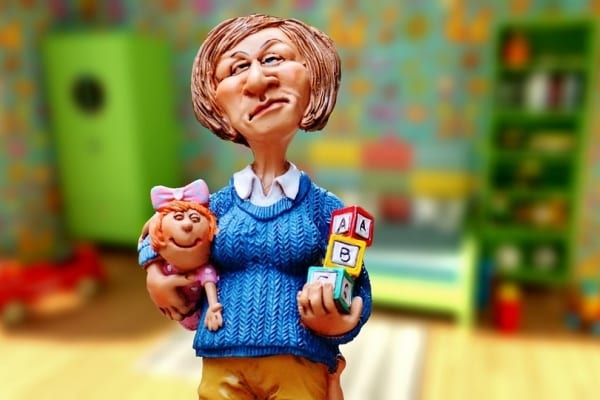
Gender bias in uni students: what happens to those kids after they graduate
In yet more news that should be shocking but is really just another drop in a big biased ocean, a recent study found that gender has a greater effect on how students evaluate their teachers than the quality of teaching. Even to the point of impacting on their perception of now quickly work is returned to them
NPR reported on the study in which male and female teachers delivering online courses agreed to swap genders with half their students.
The same instructor, with all the same comments, all the same interactions with the class, received higher ratings if he was called Paul than if she was called Paula.
And that higher rating even applied to a seemingly objective question: Did this teacher return assignments on time? (The online system made it possible to ensure that promptness was identical in every case.)
This study should (but probably won’t) have a huge impact on how schools and universities consider student evaluation of their teachers, but the wider impact of the bias in reporting is even more interesting. All those students leave university and go out into the world, they take jobs as restaurant managers, hotel owners, bank tellers, accountants, doctors, and construction site managers. What happens to those unconscious biases when they leave university? No one seriously thinks they just magically trickle away do they?
What happens to the women who work for them? Or the women they work for?
When I asked a few days ago why 70% of the Order of Australia honours were given to (mostly white) men, is this underlying perception bias that downgrades female achievement responsible?
Inga Ting’s outstanding analysis of the nominations and awards shows that women are more likely to be given the award once they have been nominated, but they are still far less likely than men to be nominated.
Again, it seems likely the perception that outstanding work by women is not as outstanding as the same work done by men is at play.
And what happens to the rest of us? Our sights maybe set a little lower than an Order of Australia award, but if we’re just expecting to get the pay rise we deserve, the promotion we’ve worked for, the next semester of sessional teaching or the next job we applied for? How many of those kids who once marked a teacher’s performance down because of her gender are, a few years later, making those decisions?
I get asked fairly regularly why so many activists “go on all the time about all that women stuff”. This is why. Because all those biases that disadvantage women, all those perceptions undermining female ability and strength need to be challenged. Not just once, and not gently. All of us need to be constantly reminded that we have been taking in the messages of gender and racial based power all our lives. And they have an impact on all of us that we often don’t know about. The way we change them, shake them up and break them, is to look at them, talk about them and recognise that they’re real.
NOTE: on the Order of Australia nomination, they’re open now for the 2017 awards, time to start thinking about the women you want to nominate. You can nominate more than one woman, in fact you could nominate one a week if you wanted to…
It would be very interesting to know whether increasing the number of women nominated will have an impact on the number of women given awards.

